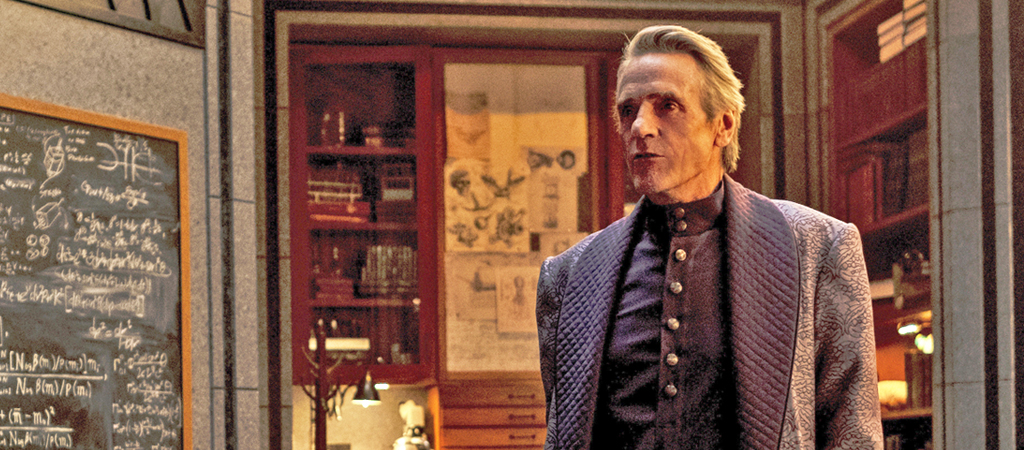With HBO’s Watchmen, showrunner Damon Lindelof pulled off an ambitious continuation of Alan Moore’s groundbreaking graphic novel. So far, we’ve used the weekly roundups to discuss lingering mysteries, but following an intricately crafted season, it’s now time to rank the major players while glancing toward the future.
Before we get dive into the chaos, I want to point out that despite Watchmen (which is one of Uproxx’s top TV shows of 2019, by the way) delivering an ultimately satisfying first season finale, we have one glaring omission. This frankly might prompt a one-sided beef between myself and Damon Lindelof because Lube Man did. not. return. I held out hope that not only would he come back to the series — even though we only met him once as he slid into a sewer grate — but that we’d receive confirmation of his true identity. Yet we neither saw nor heard anything about our greasy vigilante, nor did we see FBI Agent Daley Petey. They’re the same guy, right? HBO’s PeteyPedia site has suggested as much, so my hope is now ignited for a Watchmen second season (yet Lindelof says he likely won’t be involved if there is one) to fuel the Lube Man thirst.
And on with the rankings, from losing to winning.
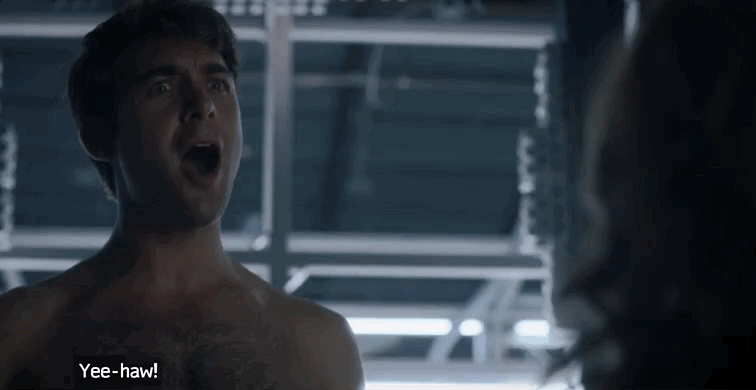
8. Senator Joe Keene And The Seventh Kavalry: I know, I know: “Not great, Bob!”
The biggest loser of the season is Seventh Kavalry, which turned out to be a modern-day iteration of the white supremacist Cyclops organization. And since James Wolk’s senator led the whole bunch, it was indeed “justice” to see him reduced to a pool of blood after trying to absorb Doctor Manhattan’s atomic energy. The likelihood that he felt it happen is probably minimal, right? Still, he essentially took himself out after three years of poor planning by his racist associates, all while playing right into Lady Trieu’s hands.
Keene got what he deserved while clothed only in a ridiculous pair of underwear. It’s pretty gratifying to think of how he popped “like a water balloon” due to his own delusions of grandeur, not to mention his whiny rant about how white men have had to apologize for the “alleged sins” of their ancestors. Keene’s death was a fine way to wrap up an entire season full of Lindelof refashioning his continuation to resurface an era of Black history for mainstream audiences. And we also learned that Judd only befriended Angela to get closer to Cal/Jon, so screw the lot of them.
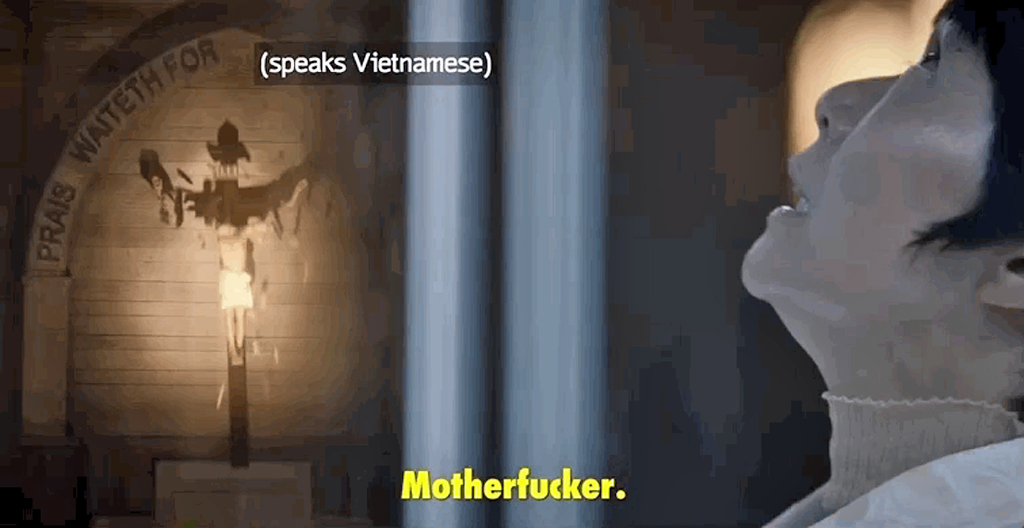
7. Lady Trieu: Trieu didn’t lose quite as hard as Keene, but only because she did serve him that justice first as a return favor to Will (all carried out at the location of 1921 Tulsa Race Massacre). I was rooting for her to stick with the antagonistic label instead of edging into villainous territory, but yup, that was a pointless hope. I mean, she could have built a different life for herself other than seeking the power of a god, right? Yes, she was the daughter of an Adrian Veidt sperm sample and a woman who stole said sperm sample, so I’m assuming there was no stable upbringing, and she truly was an amped-up version of her father’s daughter.
Of course, Trieu as a character remains a fascinating subject. She made the fatal flaw of rescuing Adrian from Europa, only for him to return and crush her dreams of “saving the world” out of necessity, in order to save it himself, this time not by engineering a giant squid hoax but for real. She was truly a “worthy adversary” for Adrian, and I’m not sure if time will eventually see people empathizing with Trieu or not, but what is plain and simple is that she was needed to be taken out. Yet I do still wrestle with Trieu’s nature. Did she stand against the Kavalry, or were they simply a foe to be eliminated? She was doing some of the right things, but she was still a monster.
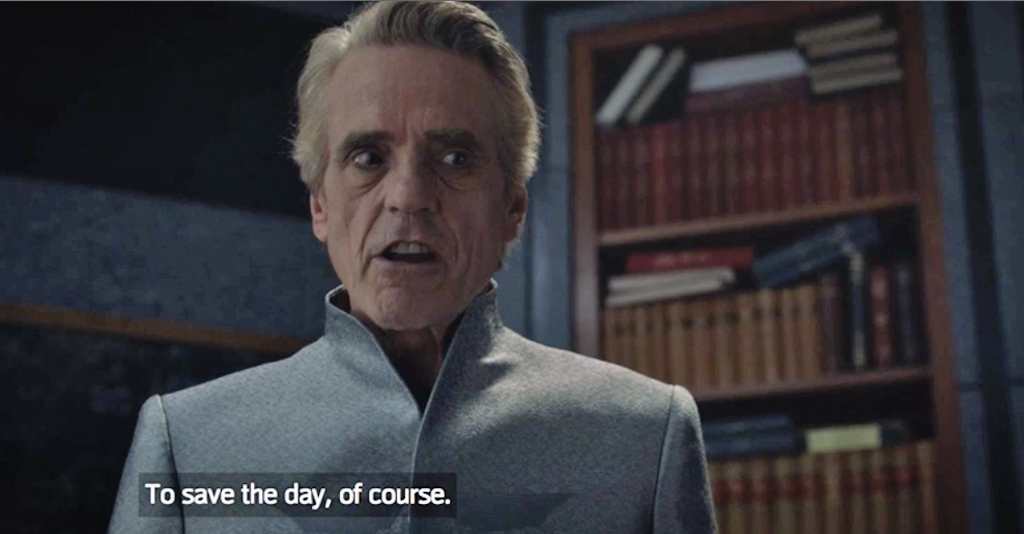
6. Adrian Veidt/Ozymandias: And now we have a guy who’s mostly a monster and happened to have the opportunity to do the right thing in the finale. He’s both a winner and a loser? I guess it’s always been that way for Adrian Veidt, who was confirmed to be “Han Solo”-ed into a silly gold statue earlier in the season.
So, fast-forwarding to the present, Adrian spent eight years apparently acting out his own prison fantasy on Europa. It’s kinda nuts, really. Despite his grumbling, he was only entertaining himself! You know, directing his play and growing babies and then insulting the game warden during the masked clone’s final breaths. The whole horseshoe thing was a disappointment, but Adrian always wins in his own mind. He’ll likely be sentenced for killing millions of New Yorkers, and he’ll try to fart his way through that trial as well.
We did find out that Veidt is a virgin, but c’mon, no one stores thousands of his own sperm tubes for no reason at all. Yes, Trieu’s mom was a thief, but Adrian also recognized Trieu as a narcissistic monster who’s like himself (even admitting that “it takes one to know one”). If he actually has any regrets at all, it’s that he didn’t succeed at killing Doctor Manhattan himself.
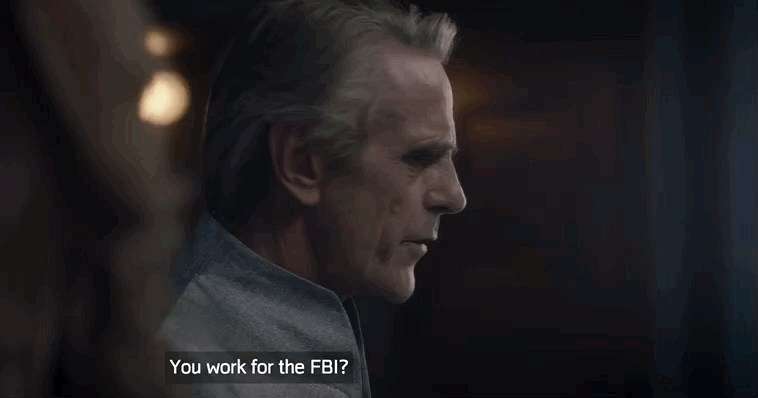
5. Laurie Blake/the ex-Silk Spectre II: Where does this leave the wisecracking Laurie? Well, she wins by never losing her sh*t and usually uttering the best one-liners. I’m actually not all too sure that she helped save the world, but I sure did enjoy watching her interact with Adrian for old time’s sake. I’m assuming that she’ll prosecute the hell out of Ozymandias and prevail in her job as the anti-vigilante Task Force leader, and she’ll always have that big blue toy to herself. I’d also watch a Wade/Laurie spinoff any day.
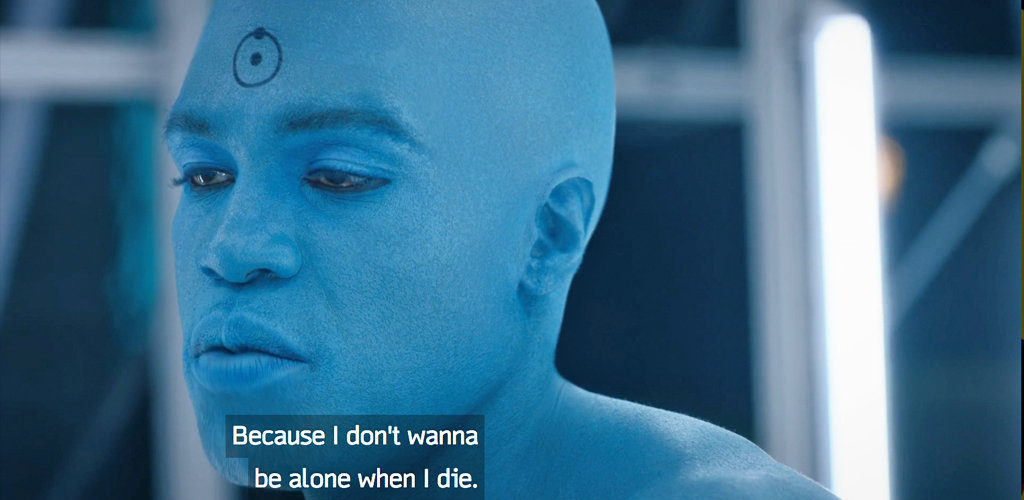
4. Jon Osterman/Doctor Manhattan: Jon Osterman had a blank memory spot of 10 years, but he probably knew how this showdown would go down, and despite his lithium cage, he still possessed enough wherewithal to zap Adrian, Laurie, and Looking Glass away to Ozymandias’ lair. As we saw in the last episode, he knew that his death was inevitable and never tweaked the timeline in order to save himself. And despite being fairly miserable as a god, he managed to carve out a decade of happiness with Angela by hiding out in the body of a human. He got his love story, dammit, and I feel like Will’s criticism that Jon didn’t do enough was his way into nudging Angela into doing more.

3. Angela Abar/Sister Night: The only reason Angela’s not the top winner here is because of Lindelof’s ambiguous ending. Can she walk on water now after ingesting the power-infused egg? Will she be the new Big Blue? And did you really expect Lindelof to show us the answer? Honestly, this ambiguity is probably for the best. Maybe we’ll receive the answer to this question in a second season, but overall, Angela prevails despite losing her husband, and even that happened after a 10-year-warning.
Where Sister Night would go from here — with or without Doctor Manhattan’s powers — is a more difficult question. The source of Angela’s trauma (seeing her parents killed during her childhood) will always remain, but she’s reconnecting with Will now and even invited him into the family home (in a totally Angela way). She could help the Tulsa Police Force rebuild itself, although everyone might reconsider the whole mask thing after the (presumed) destruction of the Kavalry. The threat of white supremacy has theoretically been obliterated, three years after the White Night, but the Watchmen universe might still find a need for costumed vigilantes.
So, it’s hard to fully evaluate where Angela landed without knowing two things: (1) Will HBO renew the series? (2) Will Regina King remain in the cast, or will this show go the anthology route?
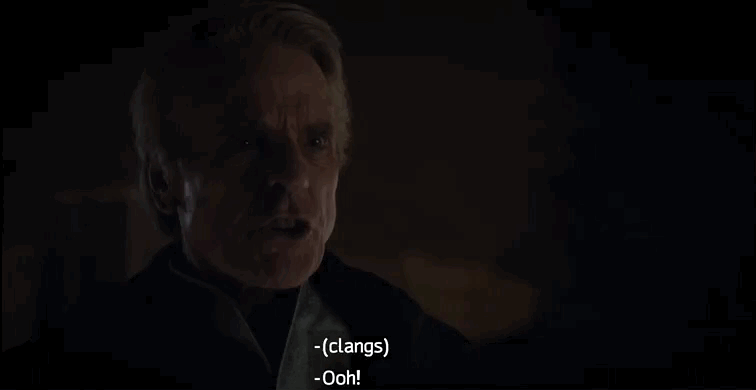
2. Wade Tillman/Looking Glass: Damn straight, the show brought him back. We didn’t get a Lube Man, and we’ll live (for now), but heads would have rolled if this fan-favorite character didn’t return after Tim Blake Nelson’s character got an origin story that fleshed out his trauma and tied into the series’ major themes.
As it turns out, Wade not only took out the armed Kavalry members who entered his home, but he then infiltrated their organization by donning a Rorschach mask. What a damn pleasure to hear his Hugo accent when he surprised Laurie. I’m also happy that he was able to confront Adrian as the “single-handed mass murder on a scale not seen in human history.” Just thinking about their verbal jousting (“ignorant hayseed,” the nerve of Adrian!) will give me life for awhile, and these scenes are worth watching over and over again. Wade will continue his story, and I hope it happens on the small screen.
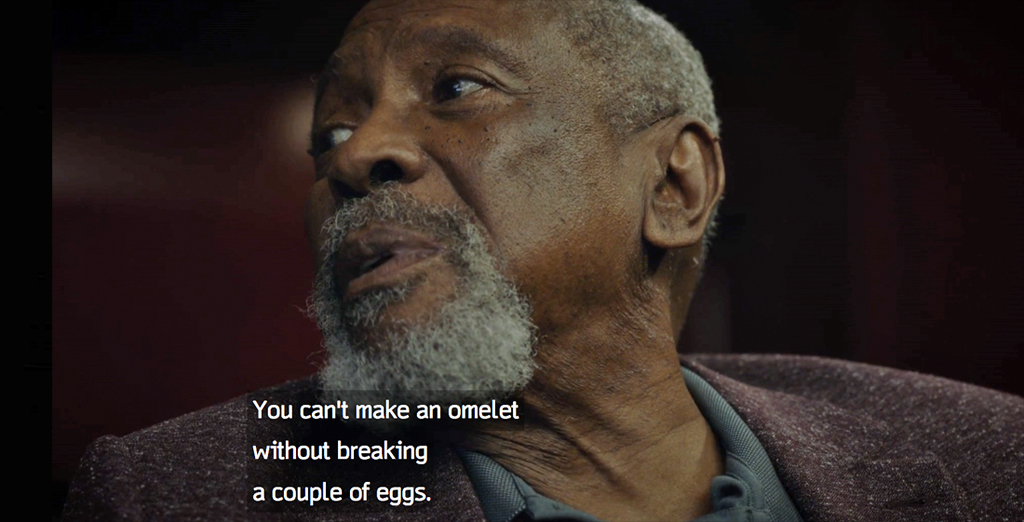
1. Will Reeves/Hooded Justice: All that egg imagery finally paid off with these words ^^^ from Will to Angela. Hooded Justice comes out on top of the entire season, nearly a century after the atrocity that shaped his entire life. He’ll always hold the title of first costumed vigilante, and Lindelof plucked his character from the supplemental pages of the graphic novel, only to transform Will and radically recontextualize the source material and transcend Moore’s already-ahead-of-its-time critique of the superhero realm. In doing so, the series wrote a Black character into history, rather than vice versa, which is how it’s usually done, and definitely how the 1921 bombing of Tulsa’s Black Wall Street was written for too many decades. (Note: The Atlantic and HBO collaborated on a new comic that breaks it all down.)
Finally, Will saw real justice when the Kavalry’s goals were thwarted after he made that deal with lady Trieu. The white supremacists failed to acquire the power of Doctor Manhattan, and hopefully, the wind is fully knocked out of their sails. In doing so, he put the wheels in motion to take down Cyclops and achieved his life-long goal. We also heard the rest of his origin story and how he was inspired by his own hero, a Black marshal of Oklahoma. However, Will’s conversation with Angela about masks and how “wounds need air” seems telling. He’s no longer festering in his fear and has fully achieved peace. The time was finally right, as he alluded, and the season kept things ticking until the very end. Well played, HBO.

